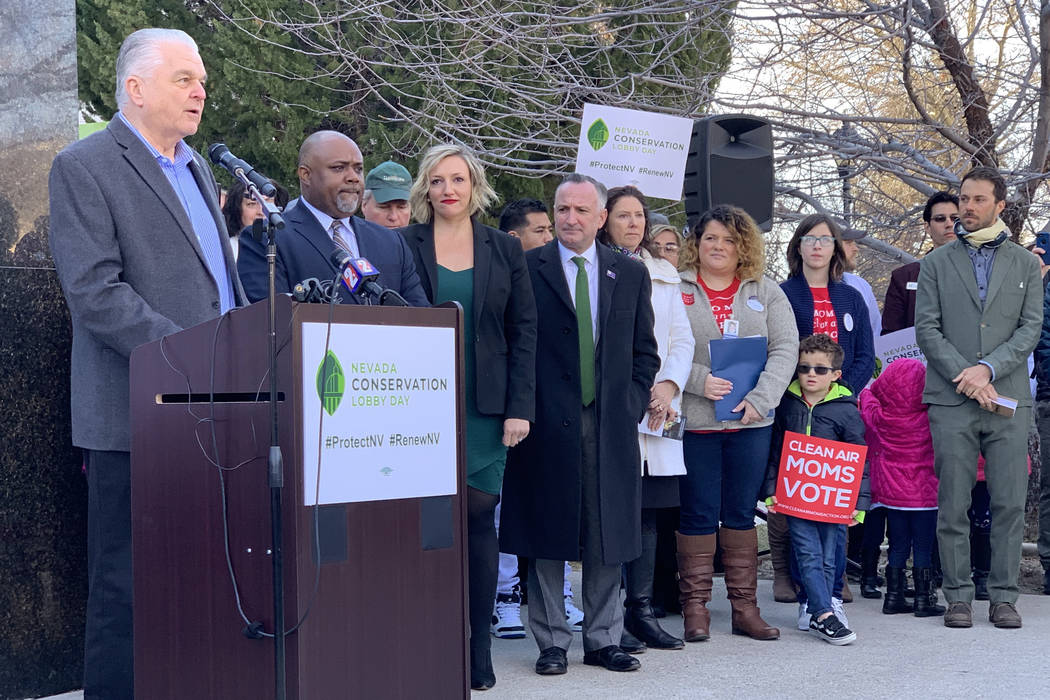VICTOR JOECKS: 4 bills to watch as the legislature winds down
The Nevada Legislative Session ends in nine days. Some of the most consequential bills have yet to receive a single vote, as of Friday.
Here are four of the most far-reaching proposals still alive in Carson City.
1. Collective bargaining for state workers, Senate Bill 135. Gov. Steve Sisolak promised to allow state workers to bargain collectively. It’s long been a priority for Democrats. Then they saw the bill. A Las Vegas Chamber of Commerce study predicted it would cost more than $250 million in the next biennium. The cost would keep increase to $3.4 billion during the 2035-36 biennium. That’s the low estimate. The Nevada Policy Research Institute projected that it could cost $1 billion next biennium.
Either way, that’s a massive price tag, especially when the next economic downturn happens. Raising taxes wouldn’t be an easy fix either, because Nevada requires two-thirds majorities in both houses to raise taxes.
2. Rolling back labor reforms, Senate Bill 153. In 2015, Republicans had unified control of state government. Instead of repealing collective bargaining for local government employees, like they should have, they compromised. They implemented some modest reforms with overwhelming Democratic support.
These changes included eliminating evergreen clauses, which allowed union members to receive pay raises even after their contracts expired. The reforms also required unions to give up something in exchange for having taxpayers pay union members to work for the union.
SB153 would roll back these reforms. The bill had been a priority of disgraced former-state Sen. Kelvin Atkinson. Supporting similar reform rollbacks in 2017, he infamously said, “You can’t keep a promise on a bad deal. This was a bad deal.”
It would have been better if this bill died when Atkinson’s political career ended in disgrace.
3. Gut Read by 3, Assembly Bill 289. At the end of next school year, third graders who don’t read at grade level and don’t have a good-cause exemption must repeat the grade. The retention requirement of Read by 3 passed in 2015 but hasn’t yet gone into effect. AB289 would all-but replace retention with intervention services for struggling readers.
Read by 3 provides everyone involved — parents, teachers and students — a clear standard for a very important reason. Students learn to read until third grade. From then on, they read to learn. If a school advances children who can’t read well to the fourth grade, those children are likely to struggle and fail every day they come to school.
If this bill passes, Nevada will have Read by 3 in name only.
4. Unconstitutional tax extension, Assembly Bill 538. The Nevada constitution requires a two-thirds vote in both houses to pass any bill that “creates, generates or increases any public revenue in any form.” That’s a problem for Democrats who want to extend the current Modified Business Tax rate. They are one vote shy of two-thirds in the Senate.
In three previous sessions, the Legislative Counsel Bureau declared that a tax extension requires a two-thirds vote. This session, the LCB produced a legal opinion declaring a bill generating almost $100 million in revenue doesn’t require a two-thirds vote.
Senate Republicans have looked unified in their opposition. If Democrats pass it without a two-thirds vote, expect a lawsuit. Republicans should win, unless the Nevada Supreme Court decides to re-enact its notorious Guinn v. Legislature decision.
Victor Joecks’ column appears in the Opinion section each Sunday, Wednesday and Friday. Listen to him discuss his columns each Monday at 10 a.m. with Kevin Wall on 790 Talk Now. Contact him at vjoecks@reviewjournal.com or 702-383-4698. Follow @victorjoecks on Twitter.






























